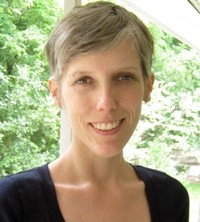非常抱歉,
你要访问的页面不存在,
非常抱歉,
你要访问的页面不存在,
非常抱歉,
你要访问的页面不存在,
验证码:

职称:Assistant Professor
所属学校:University of North Carolina at Chapel Hill
所属院系:Department Of African, African American, And Diaspora Studies
所属专业:African-American/Black Studies
联系方式:919-537-3385
A.B., Cultural Anthropology, Duke University; M.A., Ph.D., Anthropology, New York University
Current Research: Lydia Boyd is a cultural anthropologist who specializes in medical and visual anthropology. Since joining the Department of African, African American, and Diaspora Studies in the fall of 2010 her research has considered the interconnected effects of religious activism and global health policy on AIDS prevention efforts in Uganda, East Africa. Her main field study, which she began in Uganda in 2004, examines the promotion of sexual abstinence as an HIV/AIDS prevention strategy among born-again Christian youth in Kampala. Broadly, this project considers how medical discourses of health and disease intersect with contemporary and historical anxieties concerning sexual morality, marriage, kinship, and gender relations in Uganda. Her first book, based on this research, Preaching Prevention: Born-Again Christianity and the Moral Politics of AIDS in Uganda (2015), analyzes the effects of a major U.S. health policy—President’s Bush’s 2003 PEPFAR program—in terms of the cultural and moral logics which motivated the Ugandan Christian activists who popularized its HIV-prevention strategies, and the effects such efforts had on program efficacy in the years following its implementation. Her recent article in Anthropological Quarterly builds on her research with religious AIDS activists to examine the moral and cultural cosmologies which animated the recent backlash against homosexuality and sexual rights in Uganda. As part of her fieldwork with Ugandan Christian youth, she has also researched and written about the growing popularity of Christian popular culture and other religious media in Kampala. Another research project, still in its early stages, will focus on issues relating to reproductive health in Uganda today. Future fieldwork will address several overlapping topics, including reproductive education, use of new reproductive technologies, traditional discourses and practices shaping women’s experiences of health and fertility, and tensions surrounding such issues in the contemporary women’s rights movement in Uganda. Dr. Boyd is also a documentary filmmaker, and received a Certificate in Culture & Media from the interdisciplinary program in Media, Culture and History at NYU.